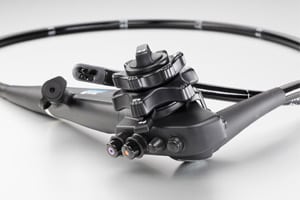
A Senate report released on January 13, 2016 finds that superbug infections linked to poorly cleaned medical devices have been more widespread than previously known. The reports places blame on hospitals, device makers, and the Food and Drug Administration (FDA). Senator Patty Murray of Washington state began the yearlong investigation of duodenoscopes, devices used to […]
 A Senate report released on January 13, 2016 finds that superbug infections linked to poorly cleaned medical devices have been more widespread than previously known. The reports places blame on hospitals, device makers, and the Food and Drug Administration (FDA).
A Senate report released on January 13, 2016 finds that superbug infections linked to poorly cleaned medical devices have been more widespread than previously known. The reports places blame on hospitals, device makers, and the Food and Drug Administration (FDA).
Senator Patty Murray of Washington state began the yearlong investigation of duodenoscopes, devices used to examine the small intestine, after a cluster of infections in Seattle, the New York Times reports. The report shows that duodenoscopes, which can be difficult to clean and sterilize between uses, were linked to at least 250 cases of antibiotic-resistant infections worldwide from 2012 to early 2015. A number of deaths resulted from the infections. But from January 2013 through December 2014, the FDA received just 75 reports relating to possible infection from duodenoscopes, involving roughly 135 American patients.
When a manufacturer learns that a device might have contributed to a death or serious injury, the firm has 30 days to report the information to the FDA, according to the Times. The Senate report says that by early 2013 Olympus, which makes 85 percent of duodenoscopes used in the United States, already knew of two investigations in the Netherlands that found Olympus duodenoscopes scopes could transmit bacteria even after thorough cleaning. The company did not inform American hospitals or the FDA until February 2015, the report said.
The duodenoscope is a long, flexible tube with a camera at the tip. The device is used to examine and treat conditions in the intestinal tract. The report says that at least a dozen hospitals around the country had traced antibiotic-resistant infections to the duodenoscopes, but that “hospitals generally did not raise alarms about these infections with federal regulators,” according to the Times.
More than 500,000 duodenoscope procedures are performed annually. The FDA says that for most patients the benefits outweigh the risk of infection because the procedure often treats conditions that can lead to serious health consequences if not addressed. But a patient who experiences symptoms such as fever or chills, chest pain, severe abdominal pain, trouble swallowing or breathing, nausea and vomiting, or black or tarry stools after the procedure should seek medical attention.
Sen. Murray said the manufacturers’ response was inadequate. “It is their responsibility when the device that they have manufactured has safety defects to notify the patients, the doctors, the hospitals,” the Times reports. “Some of the hospitals were late in notifying patients, and the FDA did not take action immediately when they began to get reports.” The report found that scope makers Olympus, Pentax Medical, and Fujifilm and Custom Ultrasonics, the maker of automated cleaning machines for duodenoscopes, had failed many regulatory obligations, according to Law360.
The report contained a variety of suggestions, including that the FDA move quickly to evaluate duodenoscope design and implement a recall to modify them, if necessary. The report also called on Congress to require “unique device identifiers” for insurance claims to make it easier to link devices to patient outcomes. The report urged Congress to fund a national medical device evaluation system, so the FDA can “effectively monitor the safety of medical devices on the market rather than relying on adverse event reporting.”


